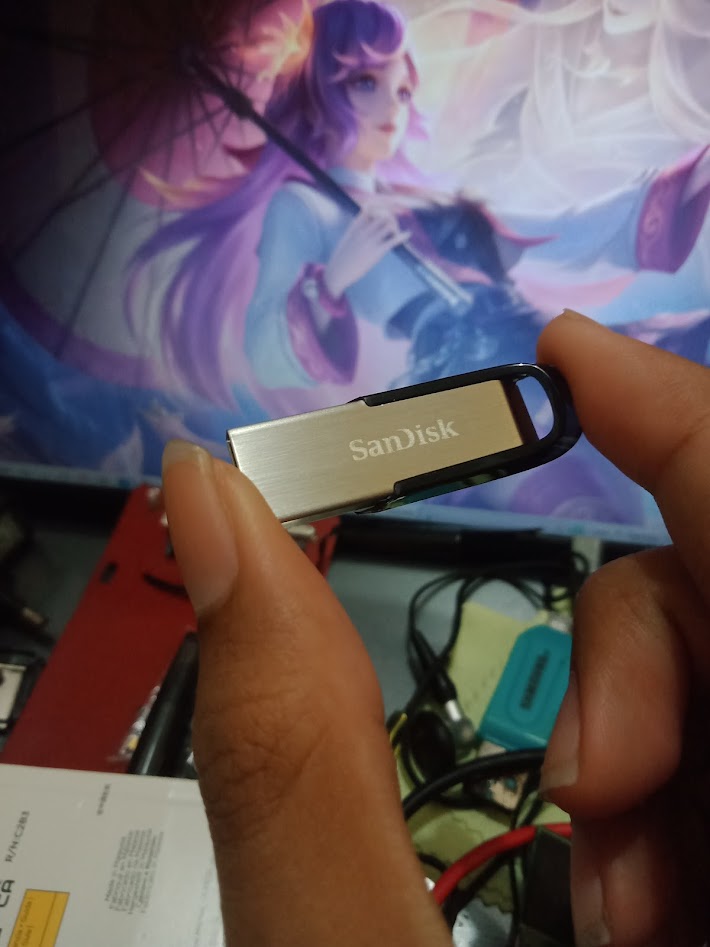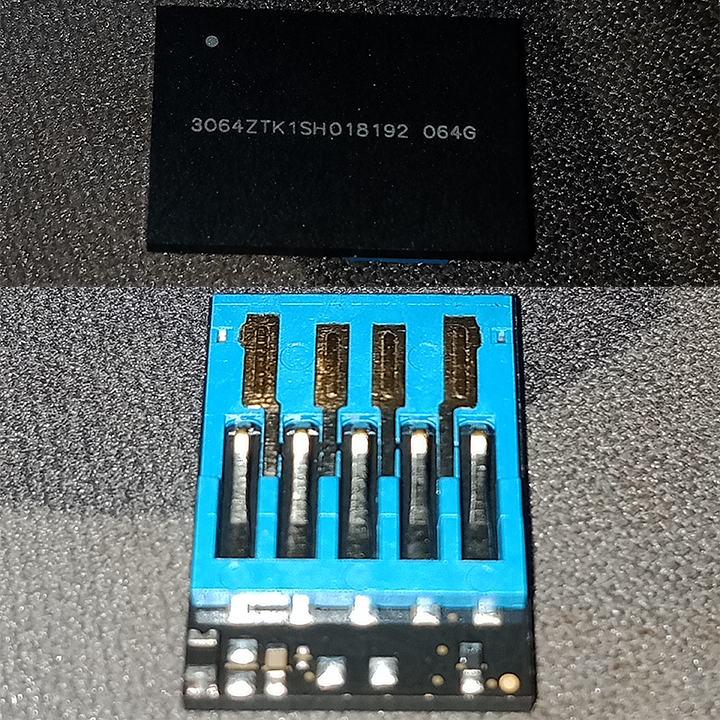Comparing: Micron 2210 MTFDHBA512QFD vs SanDisk Ultra Flair 64GB
In this comparison, we analyze two Disks: Micron 2210 MTFDHBA512QFD and SanDisk Ultra Flair 64GB, using synthetic benchmark tests to evaluate their overall performance. This side-by-side comparison helps users understand which hardware delivers better value, speed, and efficiency based on standardized testing. Whether you're building a new system or upgrading an existing one, this benchmark-driven evaluation offers valuable insights to guide your decision.

Micron 2210 MTFDHBA512QFD
| Type: | Disks |
|---|---|
| Model: | Micron MTFDHBA512QFD |
| Capacity: | 512GB |
| Interface: | PCIe 3.0 x4 |

SanDisk Ultra Flair 64GB
| Type: | Disks |
|---|---|
| Model: | Ultra Flair 64GB (CZ73) |
| Capacity: | 64GB |
| Interface: | USB 3.0 |
Specification Comparison Table
This specification comparison presents technical details of several devices or components to help you understand the key differences between each option. Use this table as a reference to determine which device best suits your needs.
| Specification | Micron 2210 MTFDHBA512QFD | SanDisk Ultra Flair 64GB |
|---|---|---|
| Brand | Micron | SanDisk |
| Format | SSD M.2 NVMe 2280 | USB FlashDrive |
| Capacity | 512GB | 64GB |
| Interface | PCIe 3.0 x4 | USB 3.0 |
Submission Comparison Table
This submission comparison table displays the number and details of benchmark data submissions from various devices or components. This information helps you understand the performance based on the benchmarks that have been tested, as well as providing an overview of the consistency and popularity of the available benchmark results.
| No. | Benchmark Software | Micron 2210 MTFDHBA512QFD | SanDisk Ultra Flair 64GB |
|---|---|---|---|
| 1 | AS-SSD |
Read: 1891.69 MB/s Write: 629.64 MB/s |
Read: 153.00 MB/s Write: 55.18 MB/s |
| 2 | ATTO Disk Benchmark - 64M |
Read: 1490.00 MB/s Write: 943.78 MB/s |
Read: 71.71 MB/s Write: 31.05 MB/s |
| 3 | Cross Platform Disk Test |
Read: 1840 MB/s Write: 812.40 MB/s |
Read: 154.32 MB/s Write: 11.04 MB/s |
| 4 | CrystalDiskMark |
Read: 2242.12 MB/s Write: 1148.16 MB/s |
Read: 167.76 MB/s Write: 54.29 MB/s |
Submission Comparison Chart
This chart visualizes the benchmark scores comparison between two hardware devices based on submitted data.
Media Gallery
A collection of photos of tested hardware. These images can help you identify the physical form, model, and variant of the hardware in question. These photos are from our own documentation, and if they are not available we may not be able to document them.
About Hardware Micron 2210 MTFDHBA512QFD
The Micron 2210 MTFDHBA512QFD is a 512GB capacity NVMe SSD that uses the PCIe Gen 3.0 x4 interface and utilizes QLC NAND flash, designed to provide the ideal combination of large capacity and affordability compared to TLC-based SSDs. One of the key components of this SSD's performance is the use of the Silicon Motion SM2263ENG controller, which is known for efficiently managing the high performance and low power consumption of QLC-based NVMe SSDs.
With this controller, the Micron 2210 is able to maximize the potential of QLC NAND while maintaining operational stability and efficiency. In tests using CrystalDiskMark, the SSD recorded speeds of up to 2242.12 MB/s read and 1148.16 MB/s write, while in AS-SSD Benchmark, the results were 1891.69 MB/s read and 629.64 MB/s write. This performance is perfectly sufficient for multitasking, fast system booting, and large file processing.
Testing was conducted on a Lenovo IdeaPad Slim 3i 14ITL6 device, with a 12GB DDR4 3200MHz Dual Channel (8+4) RAM configuration and running Windows 10 and Windows 11 22H2 operating systems. These test platforms are representative of modern systems that are compatible with the high performance these SSDs offer.
With its M.2 2280 form factor and support for technologies such as TRIM, S.M.A.R.T. and LDPC ECC, the Micron 2210 512GB is suitable for laptop and desktop users who want fast and efficient storage with sufficient endurance for daily workloads and light-medium productivity.
Device Test:
Device: Lenovo IdeaPad Slim 3i 14ITL6
RAM: 12GB DDR4 3200MHz Dual Channel (8+4)
OS: Windows 10, Windows 11 22H2
Friday, 06 August 2021 04:34:19 | Update: 1 month ago
About Hardware SanDisk Ultra Flair 64GB
The SanDisk Ultra Flair USB 3.0 64GB (CZ73) is a high-speed flash drive designed for users who need a blend of performance, elegant design and portability. With a 64GB capacity, the drive provides ample space to store important files such as work documents, music, photos, videos, and system installation files.
Using USB 3.0 technology, the SanDisk Ultra Flair delivers read performance of up to 167.76 MB/s (based on CrystalDiskMark tests), allowing users to transfer large files in seconds. The recorded write speed of 54.29 MB/s is also very capable for daily storage activities. In tests with ATTO Disk Benchmark using a 64MB file size, the flash drive recorded a read speed of 71.71 MB/s and write speed of 31.05 MB/s, indicating consistent performance under various usage scenarios.
One of the main attractions of the CZ73 is the metallic body design that not only gives it a premium feel, but also enhances its durability against scratches, light impacts and long-term use. The compact body makes it easy to take anywhere, whether attached to a keychain or directly inserted into a pocket or bag.
In tests using a Lenovo IdeaPad Slim 3i 14ITL6 laptop with Intel Core i5-1135G7 CPU, 12GB DDR4 dual channel RAM, and USB 3.1 Gen 1 port, the performance of this flash drive is highly optimized and stable, suitable for a variety of needs both personal and professional.
The SanDisk Ultra Flair 64GB (CZ73) is a great choice for users looking for a stylish, fast and powerful flash drive that remains competitively priced. Its compatibility with various operating systems, including Windows and macOS, makes it a flexible portable storage solution for everyday digital mobility.
Device test (testbed):
Device: Lenovo IdeaPad Slim 3i 14ITL6
CPU: i5 1135G7
USB: USB 3.1 Gen 1
RAM: 12GB DDR4 3200MHz Dual Channel (8+4)
OS: Windows 11 22H2
Thursday, 11 May 2023 04:16:49 | Update: 1 month ago


